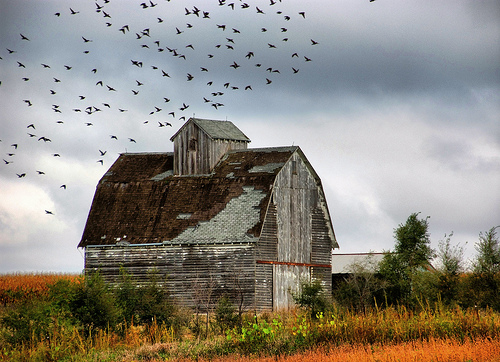The ever-insightful Douglas Rushkoff published a piece on CNN.com the other day that absolutely validated this new pursuit I'm engaged in of shucking off the shackles of looking for a job in order to focus on helping people. Using the title — “Are Jobs Obsolete?” — as a premise from which to launch, Rushkoff examines the American obsession with employment and posits an interesting counter-point:
I am afraid to even ask this, but since when is unemployment really a problem? I understand we all want paychecks — or at least money. We want food, shelter, clothing, and all the things that money buys us. But do we all really want jobs?
We're living in an economy where productivity is no longer the goal, employment is. That's because, on a very fundamental level, we have pretty much everything we need. America is productive enough that it could probably shelter, feed, educate, and even provide health care for its entire population with just a fraction of us actually working. …
Our problem is not that we don't have enough stuff — it's that we don't have enough ways for people to work and prove that they deserve this stuff. …
The question we have to begin to ask ourselves is not how do we employ all the people who are rendered obsolete by technology, but how can we organize a society around something other than employment? Might the spirit of enterprise we currently associate with "career" be shifted to something entirely more collaborative, purposeful, and even meaningful?
Instead, we are attempting to use the logic of a scarce marketplace to negotiate things that are actually in abundance. What we lack is not employment, but a way of fairly distributing the bounty we have generated through our technologies, and a way of creating meaning in a world that has already produced far too much stuff. …
For the time being, as we contend with what appears to be a global economic slowdown by destroying food and demolishing homes, we might want to stop thinking about jobs as the main aspect of our lives that we want to save. They may be a means, but they are not the ends.

A farm building in Southern Story County, Iowa. Photo credit: Carl Wykoff. Used under Creative Commons license.
In the beginning, I will confess, getting myself a motorhome to live in was mostly about financial security, knowing that I'd have a roof over my head. Now, though, as I move into the idea of being, in essence, a full-time volunteer, I see that this adventure encompasses my own independent economic reality. It is a means by which I can achieve an fantastically shareable end. As things have unfolded, I've had a few friends reassure me that I'm doing the right thing, that I'm even inspiring them to consider possible changes in their own lives. But to have Rushkoff swoop in with these timely words of encouragement is fairly well priceless.
Sure, I'll keep up my freelance writing gigs to have some actual income, to buy the so-called stuff that keeps life going; but, for the most part, my time and energy will be spent being of service to others and working on farms in exchange for food. The simplicity of the set-up harkens back to a pre-Industrial Age time that Rushkoff alludes to in his article, a time before employment was the goal in and of itself, a time when we lived in rhythm and harmony with the natural world. And what could be more collaborative, purposeful, and meaningful than that?









